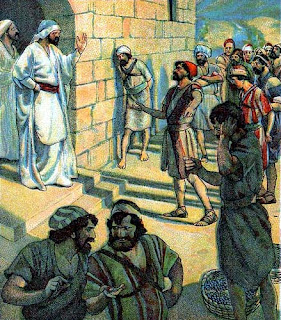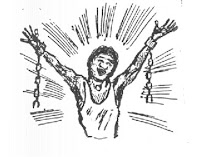It’s such a different experience — being there, compared with being told about what it was like to be there.
Reading a blogpost about our gatherings, whether online or in person, is always likely to leave the impression that our gatherings are like lectures, webinars, study classes. They are never like that. In the subtlest ways, everyone in the room participates and changes what transpires, changing it into a woven, group activity. And as our gatherings take place explicitly to allow a space for reverence to emerge, whether that reverence is in regard to a special circumstance of life, a personal deity, or, as most would probably suggest, the biggest mystery of all (life, in its fullest), the woven, group activity evokes what cannot be conveyed in a written report.
Our gathering on Zoom on 8 May 2022 included singing along to videos, silence for personal reflection, two readings from the Christian Bible, and a period for sharing joys and concerns in our minds at the time. On Zoom, other rituals are more difficult to arrange, and we will be considering that as we move back to meeting in person, in July. We have no intention of meeting in person merely to listen to someone’s words about somebody else’s written words that have been read out loud. There has to be more to the act of gathering, than that.
 |
| This is representative - it's a gathering of Unitarians in the Ringwood Meeting House, but this is an old picture. |
Nonetheless, you’re reading this because you want to know what theme was covered in our gathering, so here goes, as usual.
We opened with a recollection that, though it has to some extent worn off to people in the UK, in Ukraine there is no escaping the continuing shock of the invasion. We lit our chalice candle while hearing words prompting us to keep watch with those suffering:
'My soul is sorrowful, even unto death: stay awake and keep watch with me.' (Book of Mark, chapter 14 verse 34)
The first reading was from the Bible, book of Job, chapter 38, verses 4-21. God confronts Job, saying,
We heard a second reading from the Bible, book of Mark, chapter 8 verses 27-30. In this reading, the teacher Jesus is asking his followers who people think he is. And Peter answered Jesus, ‘You are the Messiah.’
“In our first reading we are given the fictional speech where God turns the tables on Job and all his wise friends. Job has been asking the hard questions, and his various friends have trotted out the ‘right answers’; but none of it has been satisfying. Finally, it is God who speaks.
“God unfurls the wonder of the cosmos and the passing of aeons, and in essence poses the question, ‘Just who do you think you are?!’ The wonder is not that Job does not know all the answers, or that he is left with so many questions. The wonder is that anyone should ever have thought they knew it all !
“Whilst there is a nobility and vitality in wanting to know more and to understand better, it is foolishness and arrogance to think that any of us has ever got it all worked out. That is not to say our insights, our thoughts, and our experiences are worthless. It is not to say that there is no difference in value between one way of seeing and doing, and another. But it is to say that there is always more to know, more to ask, more to do.
“This confrontation, staged between God and Job and all the wise friends, is a call not to lose heart in the face of questions and doubts, and not to become rigid in our ideas, in our ways of doing and saying. After all: who do we think we are?
“In our second reading we find a similar question posed. The main protagonist of the Gospel of Mark is asking his friends and followers who the crowds think he is. They have a mix of answers: maybe John, the fiery preacher who was apparently recently executed. Maybe Elijah, the returned ancient figure of power from the past. Or maybe, just one of the many insightful people who have something important to say. There’s conspiracy theories in there, there’s fanaticism, and there’s perhaps more balanced respect and interest, too.
“Then Jesus asks them who they themselves think he is. You can almost imagine an awkward pause. Would we have a ready made answer to this, if asked by someone important to us?
“It is Peter who finally breaks the silence, by saying, “You are the Anointed One.” And that’s all the author of Mark has Peter say. We’re not told what that means, or what that implies. We get that it marks Jesus out as special, but in what way? Early readers of Mark would have immediately known that priests are anointed, prophets are anointed, kings are anointed, and, of course, the dead are anointed for burial too. Mark doesn’t have Peter explain himself in his Gospel, and Mark doesn’t give us a narrator’s answer either. The Jesus we read about in the book of Mark is said to be many things by the different people who meet him. And, depending on their varying encounters with him, what they say of him and their actions towards him vary too.
“Mark places Jesus into situations that were recognizable then and, with a bit of imagination, are recognizable now; but then has the man doing and saying the unexpected. Mark is setting out a protagonist who is challenging to those around him as well as to us the readers: Jesus won’t let things be just as they are.
“We know how this went. Every character in Mark had to decide for themselves about this Jesus, and every reader of Mark has to as well.
“In a lot of ways, the book of Mark is a Unitarian Gospel. It challenges, and it asks the question, but it is left open to us to rise to it and to answer. I offer you these two questions today — not as a test and not because I have the answers, but because the questions themselves are at the heart of our shared Unitarian practice.
“Firstly, who do you think you are?! And secondly, when you think about the story Mark weaves around his strange protagonist Jesus, and the odd things Jesus does and says, who do you say he is?"
We finished with this blessing, based on Repose in The Sun Dances – Prayers and Blessings from the Gaelic, collected and translated by Alexander Carmichael.
Thou of Wonders
Shield us with might
Oh thou of natures laws and all its stars
Compass us this night
Body and soul
Compass us aright
Between earth and sky
Tonight
Between the allness of thy mystery
And the blindness of our sight
Compass us this night
And every night
Oh thou of Wonders
Compass us aright.
https://www.youtube.com/watch?v=GnlMktJTHTA






